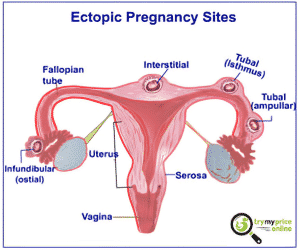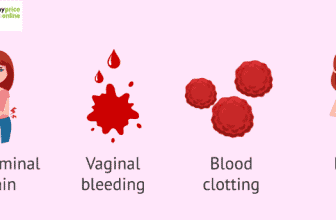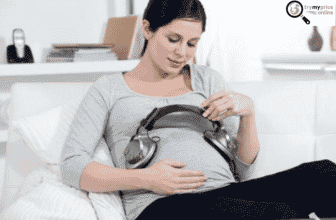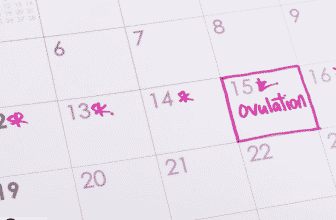
Ectopic pregnancy symptoms, When a fertilized egg implants beyond the uterus, most usually in the fallopian tube, it is called an ectopic pregnancy. The fallopian tube, unlike the uterus, is not designed to contain a developing fetus and cannot extend. The mother may have bleeding as a result of this condition. Ectopic pregnancy is an existing condition that necessitates immediate medical attention. So here are ectopic pregnancy symptoms.
Related: What does it mean that the pregnancy test is negative but no period there is?

early pregnancy test faint line
Ectopic pregnancy symptoms
Early signs of an Ectopic pregnancy symptoms can be mistaken for those of a normal pregnancy.
During an ectopic pregnancy, however, you may encounter additional symptoms such as:
Bleeding in the uterus.
Lower abdominal, pelvic, and lower back pain
Weakness or dizziness
The anguish and bleeding from a ruptured fallopian tube may be severe enough to induce other symptoms. Some examples are:
Fainting.
Blood pressure is low (hypotension).
Shoulder discomfort.
Pressure in the rectal cavity.
You may have acute lower abdomen discomfort if a tube ruptures.
This is a medical emergency, and you should contact your doctor or go to the nearest emergency room right once.
If you become pregnant while wearing an IUD, call your healthcare practitioner right away.
Ectopic pregnancy occurs more frequently in certain circumstances.
You can download a guide to ectopic pregnancy from amazon
Related: What week of pregnancy am i in
What is the severity of an ectopic pregnancy?
An ectopic pregnancy is a health issue. The uterus is designed specifically to accommodate a developing fetus.
It’s a flexible organ that expands and contracts as the fetus grows.
Your fallopian tubes aren’t as flexible as they once were. As the fertilized egg grows, it may explode.
When this happens, you may feel severe internal bleeding. This is a life-threatening situation.
To avoid injury to the fallopian tube, other abdominal organs, internal hemorrhage,
And death, an ectopic pregnancy must be treated as soon as possible.
Related: B6 And Unisom during Pregnancy: Is It Safe?
Can I continue my pregnancy after an ectopic pregnancy?
An ectopic pregnancy is unfortunately lethal for the fetus.
It can’t survive outside the uterus.
To save the mother’s life, an ectopic pregnancy must be treated quickly.
There can be serious internal bleeding if the egg implants in the fallopian tube and the tube bursts.
This could lead to the mother’s death.
Related: Pregnancy test with salt

clearblue pregnancy test
How to know if I’m having an ectopic pregnancy?
There are a number of variables that can raise your chances of having an ectopic pregnancy.
A risk factor is a characteristic or activity that makes you more likely to acquire a disease or illness.
If you’ve had any of the following, you may be at an increased risk of developing an ectopic pregnancy:
An ectopic pregnancy in the past.
PID is an infection that causes scar tissue to grow in the fallopian tubes, uterus, ovaries, and cervix.
Your fallopian tubes (with tubal ligation, often known as having your tubes tied) or other pelvic organs may require surgery.
An infertility history.
Related: Unisom for pregnancy nausea and how to use it
Ectopic pregnancy symptoms

To sum up, About ectopic pregnancy symptoms and risks note that, an ectopic pregnancy is unavoidable. However, you can strive to lower your health risks by adopting healthy living practices.
References:







